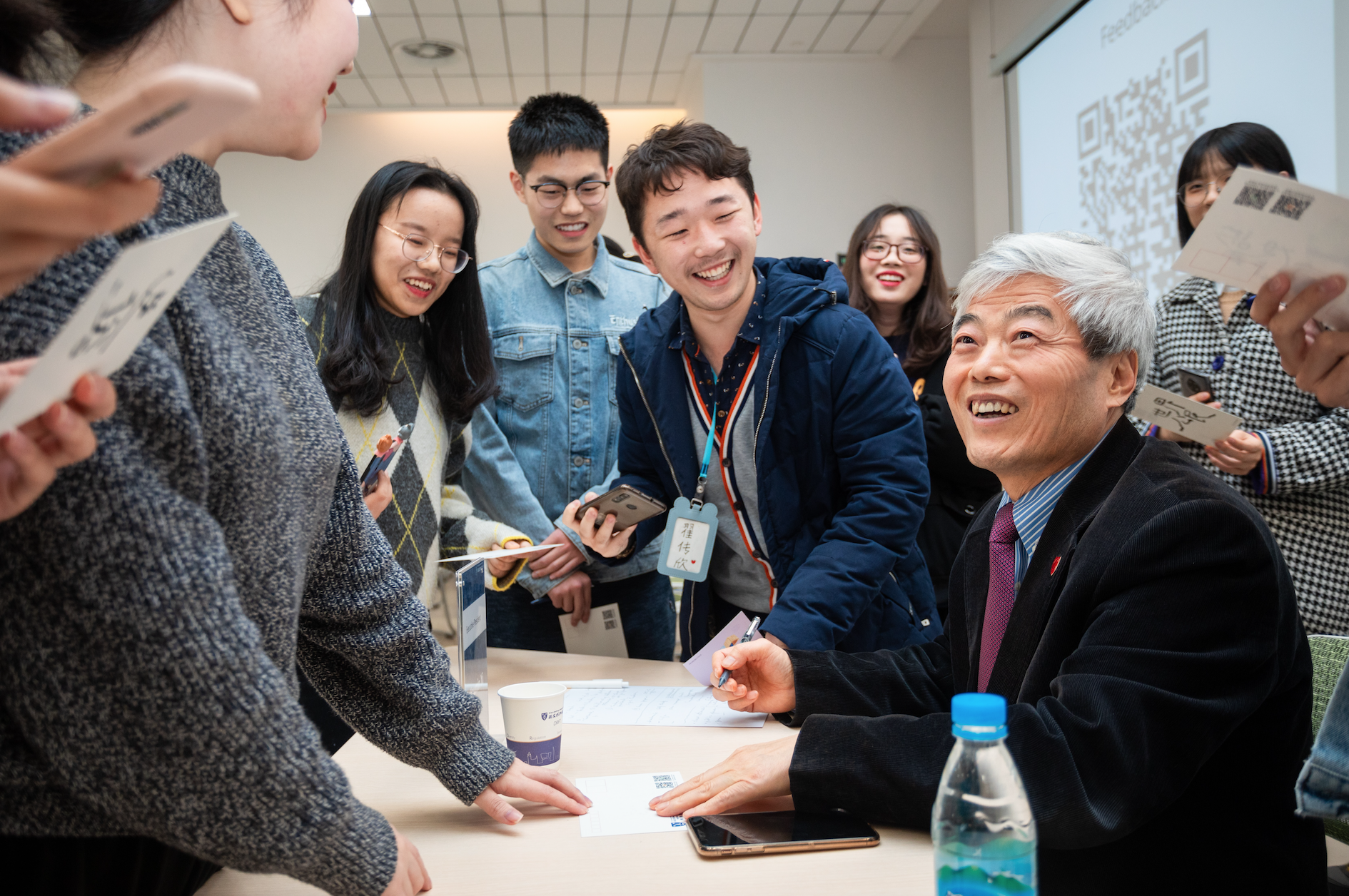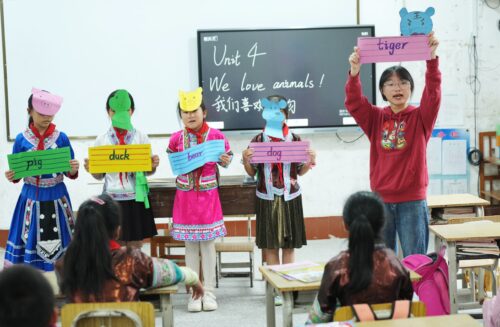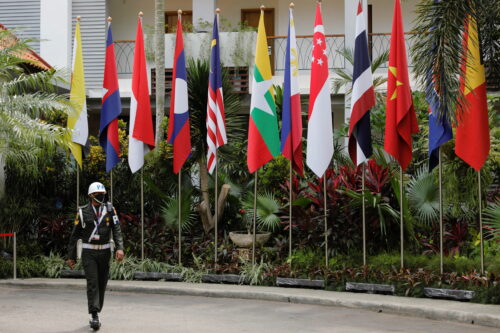How COVID-19 has — and hasn’t — changed Chinese students’ plans for international education

In a world upended by the COVID-19 pandemic, Chinese students are rethinking their education choices. And the decisions they made this year are bound to have far-reaching implications not only for universities in foreign countries, but also for higher education in China, where some say systemic reform is long overdue.

This article is brought to you by Xi’an Jiaotong-Liverpool University, a leading international joint venture university based in Suzhou, Jiangsu, China.
Liu Yajing had an exciting plan for 2020.
Earlier this year, the Chinese student of Xi’an Jiaotong-Liverpool University (XJTLU) was finishing up her last year as an undergraduate at the University of Liverpool in the U.K. through the schools’ cooperative program. She was on the path to receiving two bachelor’s degrees: from the British school and from XJTLU, an international institution based in Suzhou, where she spent the first two years of her college life. Back in March, she was thrilled to get accepted to University College London, a dream school for her to pursue a master’s degree in entrepreneurship.
But then the COVID-19 pandemic reached its peak, causing the most dramatic disruption in the history of higher education. As the University of Liverpool closed its campus and fully embraced online teaching, Liu returned to her home in Anhui, distraught over having to miss out on all the anticipated events that preceded her graduation. In the end, she attended a virtual commencement instead.
In July, as the virus continued to spread in the U.K., Liu made the difficult decision to apply for a deferral of her offer and start a master’s program at XJTLU. “I was conflicted. But I told myself that this might be a blessing in disguise,” she said.
In China, Liu was not alone in rethinking her education choices in a world upended by the pandemic. And the decisions that students made this year are bound to have far-reaching implications not only for universities in foreign countries — especially those that heavily rely on Chinese students for revenue — but also for higher education in China, where some say systemic reform is long overdue.
How COVID-19 has affected an entire generation of Chinese international students
To understand the substantial impact of COVID-19 on Chinese students’ willingness to study abroad, one doesn’t need to look further than Xi’an Jiaotong-Liverpool University.
In a typical year, around 1,700 students from XJTLU — nearly half of the students eligible in a year — choose to take part in a “2+2 program” like Liu did, which allows the participants to spend the first two years at XJTLU and the last two years at the University of Liverpool.
But this year, due to a host of concerns related to COVID-19, “the number of students trying to go to the U.K. to complete their studies has dropped dramatically,” said Professor Youmin Xi, the executive president of XJTLU.
Meanwhile, the university has seen an uptick in enrollment among Ph.D. and postgraduate students, many of whom had received offers from leading universities overseas but ultimately decided to go to XJTLU instead. In response to the growing demand, XJTLU this year “increased the number of postgraduate students by more than 40 percent,” Xi said.
For an extended period of time, Chinese students have been one of the biggest stories in international higher education. According to statistics released by the Chinese Ministry of Education, from 1978 to the end of 2012, over 2.6 million Chinese studied abroad, making China the world’s biggest source of international students. With parents being the biggest spenders of the country’s rising middle class, about 662,100 Chinese students left the country to pursue advanced studies overseas in 2018.
The trend was predicted to grow — until COVID-19 came into the picture. In a February survey of over 100 Chinese agencies specializing in helping students enroll at foreign universities, roughly 65% said they anticipated that the total number of Chinese students studying abroad would decline this year. Over 35% said that they expected their clients to alter their plans in some way because of the coronavirus pandemic.
It will take years for Chinese students’ appetite for higher education abroad to go back to normal
While many students, like Liu, decided to defer admission or withdraw their applications after weighing the risks, some refused to let the global pandemic disrupt their plans.
“I definitely thought about pursuing a different path when the outbreak first emerged,” said Wang Chuanxi, a sophomore at XJTLU studying computer science and technology. “But after learning that XJTLU and the University of Liverpool have held multiple talks and rolled out a set of measures to keep ‘2+2’ students safe, my parents and I were less concerned.”
But for Lin Jingyi, a XJTLU senior majoring in applied mathematics, her commitment to the same route was met with pushback from some people in her family. “Almost every relative of mine worried about me. Even my parents and close friends wanted me to shelve the idea of studying in the U.K. and wait until everything is under control,” she said. “The elders in my family even voiced strong opposition.”
When asked about their commitment to studying in overseas universities, both Lin and Wang mentioned their desire to be exposed to a different culture. Although online classes were less than ideal, Wang said his horizons were expanded since moving to the U.K. in October. “This allowed me a culture exchange with peers from other countries. It also gave me more opportunities to communicate with teachers after everything went online,” Wang said.
Xi believes that the impact of COVID-19 on Chinese international students will last at least a few years — depending on when the pandemic will be under control and how the tensions between China and other countries will play out in the post-pandemic world. “Some of the students may still want to study abroad because they are keen for an international experience,” Xi said. “Besides education, they are trying to experience a different culture.”
For Chinese students who are unable to study abroad as planned, some colleges are filling the gaps
With the world in the grip of an unprecedented pandemic, Wang and Lin were given two options: to continue their studies at XJTLU or to embrace a new adventure at the University of Liverpool. Others, however, were in a particularly difficult situation when regulatory obstacles were added to the mix.
Among prospective international students in China, one group that has been hit the hardest comprises the high school graduates who didn’t take the gaokao (高考 gāokǎo), the country’s hypercompetitive national college entrance exam, because they were applying to universities overseas. Due to coronavirus fears and COVID-related challenges, including travel restrictions and visa issues, many of them changed their mind about studying abroad. But because rules stipulate that Chinese universities can only accept gaokao scores as admission criteria, they were ineligible to attend domestic schools as a backup.
The Chinese Ministry of Education has stepped in to address the particular challenges faced by the students. In September, the Ministry rolled out a series of policies, one of which was to let China-foreign joint education institutions take in qualified students who had to scrap their original plans to study abroad in light of the pandemic.
Across China, 90 joint education programs were made available for the additional enrollment, according to the Global Times. XJTLU is one of them.
“The students newly enrolled under these special circumstances are being treated the same as our existing students and have been allocated to different classes. Therefore, they have exactly the same status as our current students and access to educational resources,” Xi said.
He noted that limitations still exist regarding the special arrangements. “Since these students did not take the gaokao, they will only be able to obtain a degree from the University of Liverpool upon graduation. They will not receive the XJTLU degree recognized by the Ministry of Education of China that our other bachelor’s degree students also receive,” Xi added.
The temporary solution is a necessary alternative, but Xi thinks that the pandemic has shed a harsh light on a long-standing flaw of the existing system. “I understand that the gaokao system is intended to prevent education speculation, which means that a small number of people might study abroad first and then transfer back to Chinese universities in order to evade the gaokao,” said Xi. “However, the possibility of this small number of speculators negatively impacts possibilities for transferring for the students who would not participate in education speculation – the vast majority.”
Beyond the special arrangements in the age of COVID-19, Xi urged education authorities in China to push systematic reform. Today, Chinese students cannot enroll in a Chinese university without having taken the gaokao, and universities cannot award their own degrees; all university degrees are national degrees recognised by the Chinese Ministry of Education. Instead, taking the gaokao exam should no longer be a prerequisite for obtaining a degree from a Chinese university, Xi said, and Chinese universities should be able to award their own degrees evaluated and recognised by the Ministry.
“Transferring between Chinese universities and international ones would then become easy, and the tricky situation like this one caused by the pandemic would be eliminated,” Xi said.






